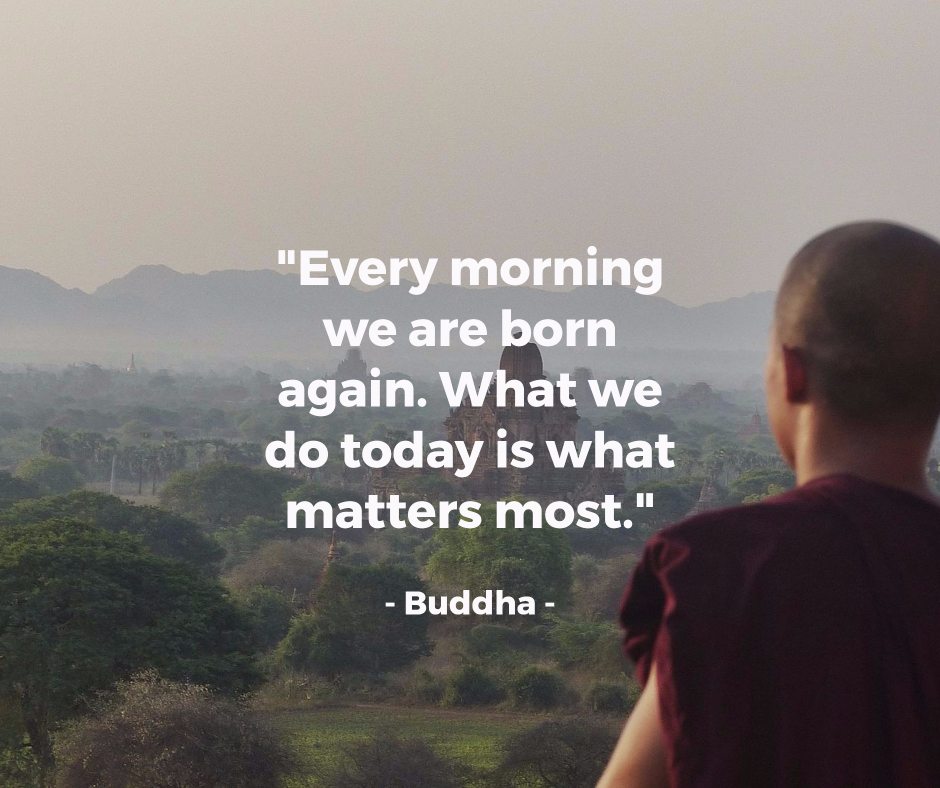The pillars of health, as I call them, are your foundation for a healthy and long life. Let one of them crumble and your whole health may follow into a downward spiral. Those pillars are:
- Mental Attitude
- Exercise
- Stress
- Sleep
- Diet
The pillars do not have a particular sequence but I thought in this order it made a nice acronym: MESSD – because if you don’t have them under control your health will really get ‘messd’ up. They may not sound like such mighty cornerstones of health, but I believe they are vital for your well-being. A lot of doctors won’t ever mention any of those pillars in their quest to heal you. Rather, they will treat the symptoms and prescribe medication as a band-aid solution before referring you to another specialist. Let’s examine each one of these pillars a little more closely and look at their implications in your health.
The Pillars of Health that few doctors ever mention!
Traditional medical practitioners, though exceptionally skilled in their chosen field, often receive limited training in areas such as stress management, dietary considerations, sleep optimization, mental well-being, and physical exercise. These dedicated professionals excel in the practice of conventional medicine, adeptly diagnosing and treating various ailments. However, due to the demands of their practice, they may face time constraints that prevent them from thoroughly investigating the underlying causes of certain illnesses. As a result, their primary approach typically involves prescription medications and referrals to specialized colleagues.
Mental Attitude

Can your mental attitude influence your health? In other words, can the way you think about your health change your health outcome? You betcha! There have been many documented cases where people have ‘thought’ themselves sick as well as the other way – individuals were able to ‘think’ themselves healthy. I am oversimplifying this concept. However, every day people heal themselves by positive thoughts, laughter, visualization or simply by living in the moment.
Studies on the placebo effect have shown that thoughts are oftentimes more powerful than drugs, with no side effects! A placebo effect happens when a person is given a harmless substance and by expecting a certain outcome they can influence the result. The more you believe in a treatment, the more likely you are to benefit from it. Therefore, thoughts and feelings can change brain chemistry and affect your health in a negative or positive way. So, be careful what you think! Keep it positive, look at the silver lining in your situation (there always is one).
How can you be positive when you have just been diagnosed with an illness? At that time you may be overloaded with emotions: feeling scared (will I die?), angry (why me?), frustrated (I did everything right, and still…) and hopeless. How can you turn these feelings around when it seems as though all the cards are stacked against you? It is easier said than done but there are various tools to help you cope.
It certainly helps if you have a support system, loved ones that care and prop you up emotionally. Meditation is a beautiful practice of looking inward and being in the moment. Self hypnosis is a similar technique which will teach you to give yourself positive suggestions toward the goal you want to reach. Prayer has been found to have incredible effects on the human body. EFT (emotional freedom technique), tapping various meridian points on your body can also have a very positive impact and the list goes on.
It is a mindset that you will have to find yourself. You cannot force it. It must come from a feeling of gratitude and love. Ultimately you must have hope and an optimistic state of mind that there will be a positive outcome in your situation.
Exercise

“Those who think they have not time for bodily exercise will sooner or later have to find time for illness.” Edward Stanley
We all know it is good for us to exercise and keep our physical bodies in good shape. Then why is it so hard to do it on a consistent basis? The excuses of no time, no motivation and no money just don’t fly. If you’re too ‘busy’ to take care of your physical health, you will sooner rather than later pay the piper.
Exercise offers incredible benefits to the human body. It stimulates chemical processes that produce hormones (serotonin and norepinephrine) making us feel better, happier and less depressed. It increases your energy levels and controls your weight. Exercise is great for your muscles and bones and may reduce your risk for certain diseases. It helps with sleep, stress and your sex life. And it will help you recover faster from any physical setbacks.
So how do you start? One little step at a time. It is never too late to start an exercise program and you don’t have to join expensive gyms or employ a personal trainer (although that could be fun and educational). You don’t have to spend hour-long sessions on monster workouts. Start small and work yourself to a level you’re comfortable with. The most important step is to START! Make the decision to exercise and commit. After a little while it will become addictive and you will feel so good about yourself that you wish you had done this a long time ago! Do check with your doctor or health practitioner about what you can safely do if you have any health issues.
Start today. Don’t overthink and overplan it. Take a walk, leave the car at home and go for a bike ride, take the stairs, visit the community center for a yoga class or dance to a YouTube video. Set yourself realistic goals and make it a daily habit.
Remember, baby steps. Don’t overdo it or you’ll get turned off. Keep it gradual, know your limits, do it in synch with your ability and have fun. Make exercise part of your lifestyle and remember my mantra: listen to your body!
Stress

“It’s not stress that kills us, it’s our reaction to it.” Hans Selye
Stress is a normal part of life, the age-old fight or flight response to save our butts in prickly situations. While some people may thrive on stress, others will get overwhelmed from those same stimuli. The difference is how you choose to react to the stressor.
In today’s fast-paced world there are a myriad of physical and mental challenges coming at us, most of which we have little control over. Some of the most common stressor in North America are related to your finances, your health, and your work. Lately, we have added the anxiety about Covid-19 which opened up a whole new gigantic can of stress worms.
When we are stressed, our bodies respond by releasing a flood of hormones designed to help us deal with the issue. Cortisol and epinephrine (adrenalin) are well known to prepare the body for fight or flight. We start to sweat, our breathing and heartbeat changes and blood vessels contract, feeding muscles with increased blood flow while decreasing circulation to the digestive system. This is not a design flaw. In times of acute, short-term stress this response is designed to keep us humans around for a long time.
However, if the perceived threat continues stressing us and we are not able to deal with it, it becomes chronic. The continued stream of hormones messes with our glucose regulation, altering immune responses and affecting growth processes like tissue repair. The body responds by creating massive inflammation. Continued for too long the health effects could be detrimental. The list of stress related illnesses is long. Diabetes, heart disease, cancer, obesity, auto-immune disease, depression, you get my drift…
Most doctors will treat the symptoms of stress (migraines, depression etc) with medication which may be a temporary fix but won’t help in the long term. While there is no magic formula, there are many beautiful management techniques. If you can’t eliminate it, you might as well be proactive. Learn to recognize it. Learn an approach to deal with it. Turn it into a positive, learning experience.
Various physical and mental techniques to cope with chronic stress are exercise, getting enough sleep, eating well, meditating and laughing. Talk to family or friends. Remember my Pillars of Health! Most importantly, BREATHE. By learning some very simple breathing skills you have an immediate method to deal with even the most stressful situations.
Sleep

”Through sleep, you disconnect from the word so you can reconnect with your soul.” Jennifer Williamson
Getting an adequate amount of sleep is vitally important to your well-being. It keeps us healthy, staving off disease and lets us function at our best – mentally and physically.
So many of us are sleep deprived. Most of us know we should get to bed earlier but end up binge-watching that Netflix series while having that late-night snack with a glass of wine. Then do the same thing the following night and so the habit starts…
On average, adults should get 7 to 9 hours of sleep per night. Failing to do so, especially on a continued basis, could result in serious health implications such as problems concentrating, irritability, lack of energy and weight gain. Ongoing sleep deficiency is linked to an increased risk of heart disease, high blood pressure, diabetes and stroke. On the other hand, getting sufficient sleep will result in optimal productivity, better weight control and athletic performance, a stronger immune system and lower inflammation, steadier blood sugar and a healthy heart, all of which result in a much better quality of life. Perhaps that’s why Jeff Bezos is focused on getting at least eight hours of sleep each night, while Einstein slept close to 10 hours.
There are four different stages of sleep packed in a sleep cycle lasting about 90 minutes. During stage 3 (deep sleep) and stage 4 (REM sleep) the body gets to work restoring and rebuilding muscles, cells and tissue (meaning also the repair of heart muscle and blood vessels). The lymphatic system gets an overhaul to strengthen our immune system and getting ready to fight off disease. Hormones get secreted to promote muscle and bone development. Sleep also balances our insulin levels which is crucial in regulating our blood glucose.
So how do you get more quality sleep? Get back into the circadian rhythm, sleep when it’s dark, be active during the day. Get into a routine, which is easier said than done since there are so many shift workers nowadays. Make smart lifestyle choices such as no caffeine after 3pm, little or no alcohol, an early dinner, exercise during the day, don’t smoke, regulate room temperature and light, and get rid of the screens – TV, computers, tablets, phones and anything connected to the internet. Fill your mind with good, positive thoughts which means do NOT watch the news before going to sleep, that is just poisonous.
What if you would like to sleep more but you can’t? More than 40 million Americans suffer from over 70 different sleep disorders. These could be caused by various factors such as medical conditions, medication, lifestyle choices, mental conditions (depression, anxiety), and environmental issues. Do some introspection and get to the root cause of your sleep disorder. Instead of depending on sleeping pills try meditation, hypnosis or yoga. Consider natural sleep supplements such as melatonin, magnesium, Valerian root, passionflower or lavender. Take a hot bath or shower before bed.
Restore your sleep, restore your health!
For more information on sleep please see my blog on “Unlocking your sleepy superpower”.
Diet

“When diet is wrong, medicine is of no use. When diet is correct, medicine is of no need” Ayurvedic Proverb
We all know that a healthy diet is important, in fact I believe it is the most important pillar supporting your health. The ‘right’ diet can prevent diseases and nurse the sick back to health. While the wrong diet can drastically alter your quality of life and ultimately shorten your lifespan. I am thoroughly convinced that the food you consume can make or break you.
But let’s face it, how many of us really know what a healthy diet is comprised of? There is a plethora of different ‘diets’ out there, each one filling the front pages of tabloids claiming they are the next weight loss miracle. Meanwhile the obesity rates have been climbing steadily, 42.4% in America in 2020, with an associated medical bill of $147 billion. A 2019 study found that ‘bad diets’ are responsible for more deaths than smoking, 11 million and counting.
There is a lot of confusion. Unfortunately most doctors, including specialists, don’t get more than a few hours of nutritional teaching during their career. To keep it simple these physicians go by government issued dietary guidelines which are passed on to their patients. These guidelines are far outdated and heavily influenced by the food and pharmaceutical industry. Then you have the fads and self-proclaimed experts who base their theory on anything but science. No wonder your head is spinning.
It really shouldn’t be that complicated: EAT REAL FOOD! That means food in its natural state. Not food that has been altered by some complicated process and chemical manipulation containing unpronounceable additives which make it unrecognizable from its original form. In short, avoid ALL processed foods!
Real food is low in sugar. While that does not hold true for many fruit, luckily most fruit is loaded with fiber which makes it a healthy choice, especially when managing blood glucose levels. Real food is loaded with nutrients providing vitamins and minerals in their natural form. A diet based on real food prohibits refined carbs, sugars, processed foods and vegetable seed oils which makes this style of eating incredibly heart healthy. Weight control will follow naturally, without even trying. Real food is high in fiber and healthy fats. It will leave you more satiated after meals which means less overeating and less snacking.
An example of real food is: most non starchy vegetables, low glycemic fruit (berries, avocados, apples), fish and shellfish (wild caught smaller fish like sardines, scallops and salmon), most meats (grass fed beef or lamb including organ meats), eggs, nuts and seeds, legumes, dairy, fats and oils (limit to butter, olive, avocado and coconut oil)…
Make fermented foods part of your diet. Keeping your gut microbiome healthy by feeding it probiotics from naturally fermented foods will keep the approx. 100 trillion bacteria and microorganisms in your intestines happy. That will result in weight loss and a great quality of life. Try foods such as kombucha (without added sugars), kimchi, kefir, sauerkraut, miso, tempeh, apple cider and plain yogurt. Your gut will thank you.
Incorporate time restricted eating or intermittent fasting into your daily routine. If you limit the time that you are consuming food during the day you will manage weight issues with ease. Let’s say you only eat between 11am and 7pm, an eight hour window, and you ‘fast’ the remaining 16 hours. Intermittent fasting can protect against chronic diseases like diabetes, neurodegenerative disorders, heart disease, and inflammatory bowel disease as well as many cancers. Try it, it’s easier than you think and it’s a great habit to get into.
Finally, when it comes to diet use your common sense. Most people that “go on a diet” do so for a few weeks or even months. Oftentimes there are immediate results. However, once the diet is done, most people will gain the weight back in record time and add a few pounds on top of it. A diet has to be a sustainable lifestyle that can be maintained for the rest of your life and it should be fun. Don’t overeat, take your time eating and stop before you are full. Don’t count calories because not all calories are created equal. Most of all, enjoy your food.


